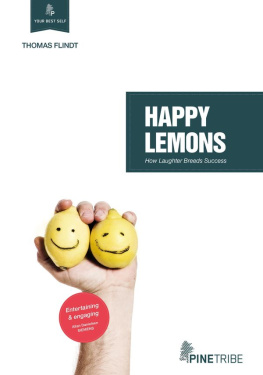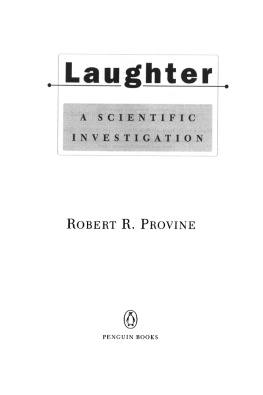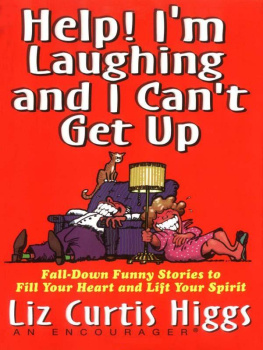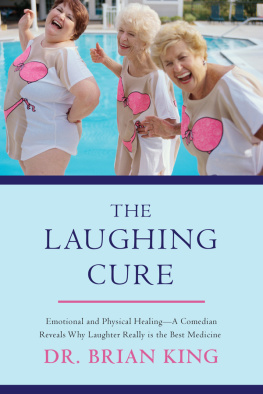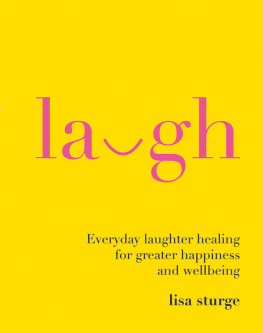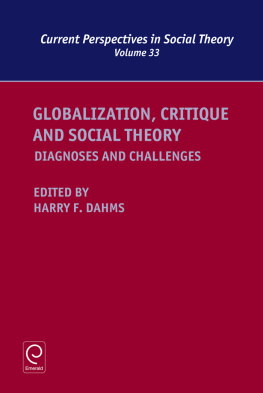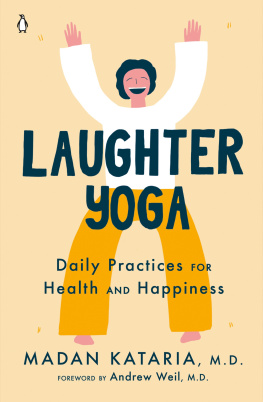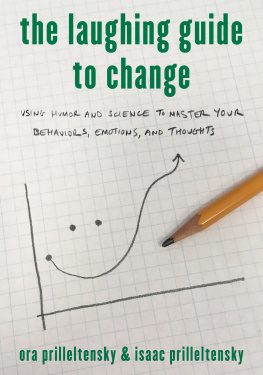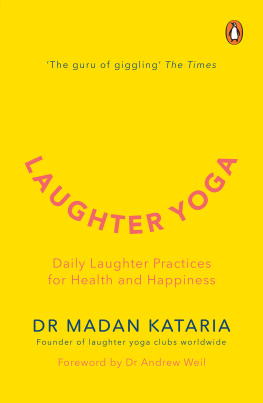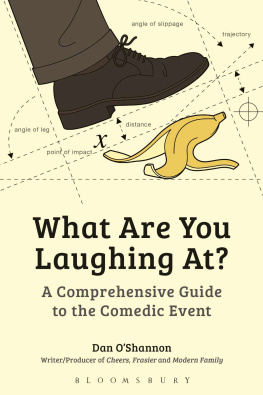Billig - Laughing and ridicule towards a social critique of laughter
Here you can read online Billig - Laughing and ridicule towards a social critique of laughter full text of the book (entire story) in english for free. Download pdf and epub, get meaning, cover and reviews about this ebook. City: London, year: 2005, publisher: SAGE Publications, genre: Politics. Description of the work, (preface) as well as reviews are available. Best literature library LitArk.com created for fans of good reading and offers a wide selection of genres:
Romance novel
Science fiction
Adventure
Detective
Science
History
Home and family
Prose
Art
Politics
Computer
Non-fiction
Religion
Business
Children
Humor
Choose a favorite category and find really read worthwhile books. Enjoy immersion in the world of imagination, feel the emotions of the characters or learn something new for yourself, make an fascinating discovery.

Laughing and ridicule towards a social critique of laughter: summary, description and annotation
We offer to read an annotation, description, summary or preface (depends on what the author of the book "Laughing and ridicule towards a social critique of laughter" wrote himself). If you haven't found the necessary information about the book — write in the comments, we will try to find it.
Billig: author's other books
Who wrote Laughing and ridicule towards a social critique of laughter? Find out the surname, the name of the author of the book and a list of all author's works by series.
Laughing and ridicule towards a social critique of laughter — read online for free the complete book (whole text) full work
Below is the text of the book, divided by pages. System saving the place of the last page read, allows you to conveniently read the book "Laughing and ridicule towards a social critique of laughter" online for free, without having to search again every time where you left off. Put a bookmark, and you can go to the page where you finished reading at any time.
Font size:
Interval:
Bookmark:
Laughter and Ridicule
Theory, Culture & Society caters for the resurgence of interest in culture within contemporary social science and the humanities. Building on the heritage of classical social theory, the book series examines ways in which this tradition has been reshaped by a new generation of theorists. It also publishes theoretically informed analyses of everyday life, popular culture, and new intellectual movements.
EDITOR: Mike Featherstone, Nottingham Trent University
SERIES EDITORIAL BOARD
Roy Boyne, University of Durham
Mike Hepworth, University of Aberdeen
Scott Lash, Goldsmiths College, University of London
Roland Robertson, University of Aberdeen
Bryan S. Turner, University of Singapore
THE TCS CENTRE
The Theory, Culture & Society book series, the journals Theory, Culture & Society and Body & Society, and related conference, seminar and postgraduate programmes operate from the TCS Centre at Nottingham Trent University. For further details of the TCS Centres activities please contact:
Centre Administrator
The TCS Centre, Room 175
Faculty of Humanities
Nottingham Trent University
Clifton Lane, Nottingham, NG11 8NS, UK
e-mail:
web: http://tcs.ntu.ac.uk
Recent volumes include:
Sex and Manners
Cas Wouters
The Body in Culture, Technology and Society
Chris Shilling
Globalization and Belonging
Mike Savage, Gaynor Bagnall and Brian Longhurst
Bootlegging
Lee Marshall
Laughter and Ridicule
Towards a Social Critique of Humour
Michael Billig

2005 Michael Billig
First published 2005
Published in association with Theory, Culture & Society, Nottingham Trent University
Apart from any fair dealing for the purposes of research or private study, or criticism or review, as permitted under the Copyright, Designs and Patents Act, 1988, this publication may be reproduced, stored or transmitted in any form, or by any means, only with the prior permission in writing of the publishers, or in the case of reprographic reproduction, in accordance with the terms of licenses issued by the Copyright Licensing Agency. Inquiries concerning reproduction outside those terms should be sent to the publishers.
| SAGE Publications Ltd |
SAGE Publications Inc | |
SAGE Publications India Pvt Ltd |
British Library Cataloguing in Publication data
A catalogue record for this book is available from the British Library
ISBN 1 4129 0250 9
ISBN 1 4129 1143 5
Library of Congress Control Number: 2004099514
Printed and bound in Great Britain by Athenaeum Press, Gateshead
Printed on paper from sustainable resources
A book on humour should have been enjoyable to write. For some reason, it did not turn out that way. In fact, there have been many days when I wished Id undertaken a less ostensibly pleasant task. So, I am grateful for friends and colleagues who have given encouragement. I am particularly grateful to those who have read drafts of chapters: Steve Brown, Mike Gane, Dave Middleton, Yair Neuman, Thomas Scheff, and John Shotter. And thanks too to Susan Dunsmore for making the copy-editing such fun.
I feel particularly fortunate to work in the Department of Social Sciences at Loughborough University. It has provided a happy home for me, being surrounded by colleagues who are willing to discuss ideas and to laugh at the world. Once again, I should pay tribute to Peter Golding who has unselfishly managed to protect the department against the demoralizing pressures undermining so much British academic life.
Finally, of course, I would like to thank my family to Sheila and to our children Daniel, Becky, Rachel and Benjamin. A conventional sense of humour often calls for an element of malice. Certainly the children and I have teased, mocked and laughed at each other in the ways that families do. But over the years, Sheila, like her mother before her, has demonstrated that there are far more important, far more serious virtues than the ability to make jokes. So this book is dedicated to Sheila and to the memory of her mother.
The idea of a critical approach to humour sounds somewhat sinister. It suggests bossiness or craziness. Either way, the prospect is not pleasant. Bossy critics would dictate what we should and should not be laughing at. The image of the crazy critic is more disturbing. Fierce-eyed and serious to the point of derangement, the crazy critic would be warning us against the dangers of laughing at all. An admission must be made right at the outset. In terms of these two possibilities, the present investigation tends towards craziness rather than bossiness.
Of course, the temptations of bossiness will not be resisted. One of the compensatory pleasures of being an academic is to act as a bossy know-all in front of minuscule audiences. Nevertheless, the present inquiry sets out on the way to craziness. To be more precise, the aim is to go beyond the partial critique of humour that the bossy critic provides. Critical bossiness is a familiar characteristic of the high-minded writer. A seriousness of purpose demands judgements. If comedy is the topic, then the bossy critic aims to raise the level of laughter. There is a left-wing version of such bossiness, telling us that we should not laugh at jokes suspected of national, ethnic or sexist prejudices. Bossy critics may also disparage the comedies that the big entertainment companies offer and that many of their readers might readily enjoy. The message is that we should smarten up the quality of our laughter. We will be told to look elsewhere for our humour: maybe to obscure alternative comedians, or to the great comic literature of the past, such as Don Quixote or Tristam Shandy, that is little read today; or perhaps we will be recommended the unsuspected wit of difficult critics.
Bossy critics, whatever might be their particular recommendations, accept the common-sense dictum that laughter is good. Their mission is to improve that goodness. There is another critical direction. Rather than criticizing some types of humour as inappropriate, and commending others for meeting the requisite standards, it is possible to call into question laughters assumed goodness. This is the path to craziness. How in all sanity can one criticize the precious gift of humour? Everybody knows that laughter is better than misery. To be anti-laughter, surely, is just plain ridiculous.
The social critic should not worry too much about the accusation of craziness or ridiculousness. One of the tasks of social critique is to question what passes for common sense. In so doing, the social critic may well fall foul of common senses own criteria for what is sensible and what is not. This was well recognized by those sceptical Marxist philosophers of the Frankfurt School, who in the 1930s created the idea of the critical social theory. They were aware that social critique must attempt to get beyond what is generally thought to be sensible, in order to understand the ideological basis of that sensibleness. So it is with a critical approach to humour. This involves critically examining common-sense views about humour, calling into question beliefs that are taken to be self-evidently true. A critical approach to humour, therefore, takes as its object common-sense assumptions about humours desirability, rather than the actual enjoyment of humour. Seen from this perspective, the craziness is perhaps not quite so crazy.
Next pageFont size:
Interval:
Bookmark:
Similar books «Laughing and ridicule towards a social critique of laughter»
Look at similar books to Laughing and ridicule towards a social critique of laughter. We have selected literature similar in name and meaning in the hope of providing readers with more options to find new, interesting, not yet read works.
Discussion, reviews of the book Laughing and ridicule towards a social critique of laughter and just readers' own opinions. Leave your comments, write what you think about the work, its meaning or the main characters. Specify what exactly you liked and what you didn't like, and why you think so.

